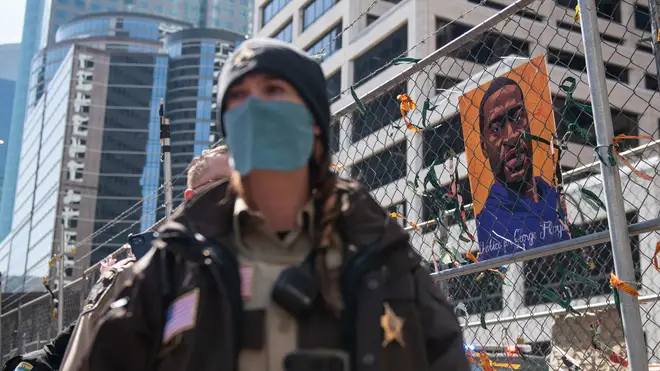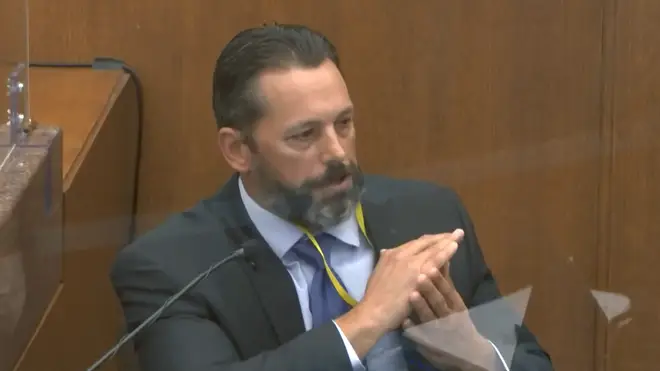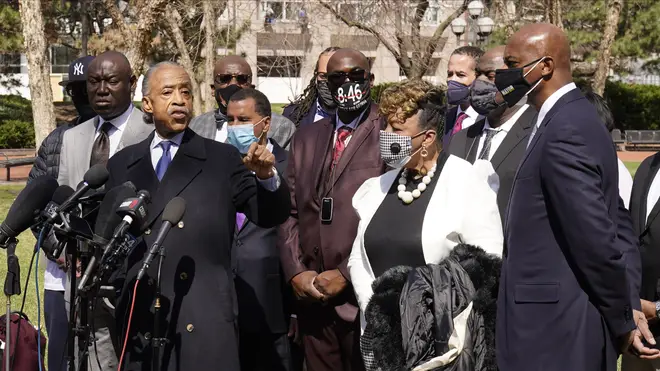
Natasha Devon 6pm - 9pm
6 April 2021, 20:14 | Updated: 6 April 2021, 22:35

The officer accused of murdering George Floyd undertook training on how police must use the least amount of force necessary, jurors at his trial have been told.
Former officer Derek Chauvin, 45, was trained in 2016 and 2018, when he was also taught on how to defuse tense situations with people in crisis, the trial has heard. He is accused of murder and denies the charges against him.
Mr Floyd, 46, was pinned to the pavement outside a neighbourhood market after being accused of trying to pass a counterfeit 20 US dollar bill for a pack of cigarettes on May 25.
His treatment by Chauvin, a white officer, was captured on bystander video that sparked protests around the US.
Instructor Johnny Mercil told the court that all who attended the training were told that restraint is considered force and the least force required should be used because "it's safer and better for everybody involved".
Read more: Kneeling on George Floyd's neck 'totally unnecessary', officer tells court

Prosecutor Steve Schleicher showed a still taken from a video with Chauvin's knee on Mr Floyd's neck and asked: "Is this a use of force?"
"Yes sir," Mr Mercil replied.
Mr Mercil said officers are trained in how to get control of a suspect by using their arms on the side of a person's neck to slow blood flow to the brain.
He said officers are not taught to use their legs or knees, though a knee on the neck can occur depending on a person's resistance.
Mr Schleicher asked if the neck restraint could be used if the person was under control and handcuffed.
"I would say no," Mr Mercil said.
Read more: George Floyd's girlfriend breaks down in tears giving evidence

Prosecutors say Chauvin kneeled on Mr Floyd's neck for nine minutes and 29 seconds after being handcuffed behind his back and laid on his stomach, despite him saying 27 times he could not breathe.
The court also heard from Sergeant Ker Yang, the Minneapolis police official in charge of crisis-intervention training, who said officers are taught to make critical decisions in dealing with people in crisis and de-escalate the situation.
This includes those suffering from mental health problems or the effects of drug use.
Chauvin's lawyer, Eric Nelson, has argued that Chauvin "did exactly what he had been trained to do over his 19-year career" and that it was Mr Floyd's use of illegal drugs and his underlying health conditions, not the officer's knee, that killed him.
He has argued the police were distracted by what they perceived as an increasingly hostile crowd and Mr Yang said officers have to take in the situation around them.
The trial continues.